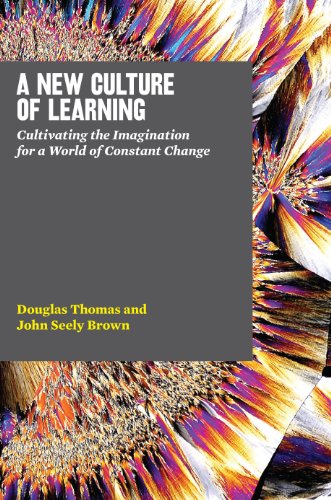A New Culture of Learning: Cultivating the Imagination for a World of Constant Change Link to heading
Summary Link to heading
“A New Culture of Learning” by John Seely Brown and Douglas Thomas explores how the landscape of education and learning is transforming in response to rapid technological and societal changes. Instead of relying on traditional methods of instruction, the authors highlight the importance of cultivating creativity and imagination. They argue for a new paradigm where learning is driven by the dynamic interplay of structure and chaos, enabling learners to experiment, question, and grow in a constantly evolving world. This approach emphasizes the role of passion, play, and the environment in creating a rich learning experience.
Review Link to heading
The book has been praised for its forward-thinking perspective on education, offering valuable insights into how learning practices can evolve to meet the demands of the 21st century. Readers have found the examples and case studies particularly engaging, providing concrete illustrations of abstract concepts. A notable strength is the book’s accessible writing style, making complex ideas approachable for a wide audience. However, some critiques point out that the book could benefit from a more detailed, practical framework for implementation, as some of the ideas remain on a conceptual level.
Key Takeaways Link to heading
- Learning as a Lifestyle: Embrace lifelong learning through curiosity and exploration rather than traditional, rigid methods.
- Play and Imagination: Encourage play as a crucial part of learning, fostering creativity and innovation.
- Adaptability: Understand and utilize the constant change in the environment as an advantage in learning processes.
- Community and Collaboration: Learning in community settings enhances knowledge sharing and growth.
- Passion-Driven Learning: Leverage personal interest and passion as a catalyst for deep, meaningful learning experiences.
Recommendation Link to heading
This book is highly recommended for educators, administrators, policy makers, and anyone interested in the future of education. It is ideal for those looking to understand and implement progressive educational strategies that align with the digital age. The book’s concepts are also useful for learners who wish to take charge of their own education and adapt to a rapidly changing world.
